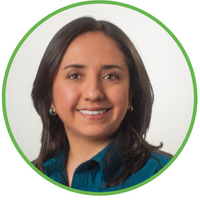Innovations in Microsampling Technologies to Advance Clinical Trial Design
As drug modalities evolve in complexity with multiplexed mechanisms of action, the need for frequent sampling of patients to monitor the safety and efficacy becomes critical. Since patient samples are a limiting factor, microsampling has become increasingly employed in drug trials to mitigate the burden on patients.
Microsampling is also used in pediatric trials when volume is limited due to the smaller size of children. However, traditional bioanalytical assays require significant sample volume to reliably measure patient status. Fortunately, advances in bioanalytical instrumentation have allowed for the use of microsampling in the key bioanalytical readouts of efficacy and safety.
What will you learn?
- Role of microsampling in clinical trials
- Review new technology used to support microsampling
- Case studies highlighting real world application
Who may this interest?
- Bioanalytical scientists
- Clinical pharmacologists
- Clinical Operations
Speaker

Lynn Kamen, PhD
Scientific Officer and Executive Director
BioAgilytix (NC, USA)
Lynn Kamen earned her PhD in Immunology at the University of Michigan (MI, USA) and completed a postdoctoral fellowship in immunology at the University of California San Francisco (CA, USA).
Lynn has over a decade of experience in drug development, from early target discovery through clinical development for large and small molecules at companies including Portola Pharmaceuticals (CA, USA) and Alector (CA, USA).
Recently, Lynn was a principal scientist at Genentech (CA, USA) where she supported in vitro biological characterization of large molecules and led development of immunogenicity assays including ADA, NAb and immunogenicity risk ranking assays. She is co-lead of the AAPS NAber working group and a member of the AAPS NAb drug tolerance sub-team.

Carla Mejia
Associate Director, Bioanalytical Operations
BioAgilytix (NC, USA)
Carla has over 14 years of experience in the pharmaceutical industry, including over 10 years at BioAgilytix. Before joining BioAgilytix, Carla worked for GSK (PA, USA) and Grifols (Barcelona, Spain) with over a decade of experience working on development, validation and sample analysis of immunogenicity ELISA and PK assays.
She has extensive experience developing assays for a variety of matrices for animal and human studies. At BioAgilytix, Carla manages an FTE model team that develops, validates, and executes sample analysis for PK, ADA and biomarker assays on multiple platforms including MSD, ELISA and Gyros. She earned her Bachelor of Science in Biochemistry from North Carolina State University (NC, USA).

Carina Carter
Scientist III
BioAgilytix (MA, USA)
Carina Carter is a Scientist III at BioAgilytix where she serves as lead scientist on a variety of assay development and validation projects. Prior to BioAgilytix, she served as Senior Scientist at EMD Serono (MA, USA), with responsibility for the development and validation of robust and reliable ligand binding assays (ELISA, electrochemiluminescence, Gyros, etc.) to measure compound concentrations and detect presence of anti-drug antibodies and neutralizing anti-product antibody activity.
Additionally, as a Senior Associate Scientist at Pfizer (NY, USA), she designed, validated and conducted assays to help support biotherapeutic programs. She earned her Bachelor of Arts in Biochemistry from Regis College (MA, USA).

Christian Braithwaite, MS
Manager II,
BioAgilytix (NC, USA)
Christian Braithwaite is a Manager II at BioAgilytix, where he supervises the development and validation of biomarker, cell-based, immunogenicity, immune and enzymatic assays for support of preclinical, clinical and product release studies. Before his time at BioAgilytix, he was a biomarker and bioanalytical senior scientist at Biogen (MA, USA) supporting planning, development and implementation of biomarker, PK and ADA strategies into early to late clinical trials. Christian earned his MS in biotechnology at Worcester State University (MA, USA).
In association with

